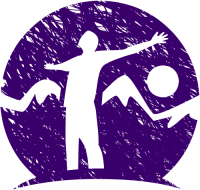My blog is dedicated to changing a broken medical system caring for children with chronic illnesses and their families. Approximately two years ago some organizations became aware of this far-reaching problem and are now at the stage of implementing a model of health care for these children by providing easy access to needed services and continuity of competent care. I am aware that these changes must be done through legislation and do take time. But, the children are suffering today. The families are walking through their nightmare now.
It is appalling that parents must drive their ill children to specialists across the counties over many miles to be seen. It is difficult to believe that their isn’t a list of standardized care and screening for our little ones. This would include referrals, plan of care, discharge procedures, and transition planning. The healthcare providers would be specially educated to gain understanding about the special needs mandatory for children with chronic illnesses and their family.
One change that could be made in a relatively short time would be the transition care. For the past few years it has been used for the elderly population leaving hospitals or convalescent homes. This would work perfectly for the children being discharged also. At the time of the discharge, there would be a ‘Transitional Care Nurse’ for the patient and his/her family.The Transitional Care Model is designed to prevent health complications and rehospitalizations of the chronically ill by providing them with comprehensive discharge planning and home follow-up, coordinated by a “Transitional Care Nurse” who is trained in the care of people with chronic conditions. At the time of hospitalization, the Nurse:
1. Conducts an assessment of the patient’s health status, health behaviors, and goals;
2. Develops an individualized care plan with evidence-based guidelines, working with the
patient and their doctors
3. Proceeds with daily patient visits, focused on optimizing patient health at discharge.
Following discharge, the Nurse conducts periodic home visits and/or scheduled phone contacts with the patient and the family in order to:
1. Identify changes in the patient’s health and
2. Manage and/or prevent health problems, including making any adjustments in therapy in
collaboration with the patient’s physicians.
3. The Nurse accompanies the patient and family to their first physician visit following
hospital discharge to ensure effective communication.
The evaluation of the study of the Transitional Care Model involving senior patients showed:
1. 45% reduction in the likelihood of rehospitalization within the next 24 weeks.
2. $3,971 net savings in health care expenses per patient
This supplemental care would give the family the extra support that they need. Yes. They are given an instruction sheet upon discharge directing them what medicines to take, how to care for a wound, or if there should be a diet change, etc. This is extremely important because the whole family is overwhelmed and tired, unable to take everything in or remember all instructions, or understand them. I am only too aware of how this feels. I was working as a nurse before I graduated from my Physician Assistant Program. But, even my medical education did not save me from these feelings. When it is your child, it becomes emotional for the parents and the child. I could have used that other person to help me to organize all of the pieces that are involved: The many Doctors’ appointments, the varied medications, their uses and contraindications, and taking care of all of the school required notifications and restrictions.
This is the change I believe could be on the horizon for this year. Any difference that I can make with my blog, I will be happy for. Each new change is a tribute to my sweet son, Alex, who is cheering me on everyday.

